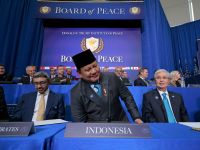Savings sentiment is up across the GCC. According to the National Bonds GCC Savings Index Report, Saudi Arabia shows the biggest increase in saving sentiment followed closely by Oman and Kuwait.
Around 60 percent of the respondents in Saudi Arabia and 63 percent in Kuwait, Qatar, Oman and Bahrain said they had plans to start or increase their savings in the next six months. “One of the positives is that there is a willingness to save with over two thirds of the GCC population indicating plans to start saving this year,” said Mohammad Qasim Al Ali, CEO of National Bonds Corporation PJSC.
According to Nalini Pippara, research manager at YouGovSiraj, one reason why Saudi Arabia is showing the biggest increase in savings sentiment is the recent regional turmoil. “Following the turmoil there was some move to increase the salaries and give out some aid to the people,” she said. While Qatar had the highest percentage of respondents in the GCC who claimed to have saved more than they did last year (29 percent) the country also had the highest percentage of people who saved less (28 percent) which shows a significant financial divide in the country.
Sense of pride
“Qatar continuously has its own dynamics. With its plans for building up for the World Cup, there’s a new sense of national pride so there is probably a new sense of saving,” said Kinan Esmail, executive director of marketing at National Bonds. However, while saving sentiment was up, the financial tools available for saving are not sufficient to meet their needs. Around 68 percent of respondents in all five countries admitted that their savings are less than they had originally planned. About 64 percent said that they save less than a fifth of their monthly income.
According to respondents, expenditures on groceries and eating out were the biggest reasons for the increase in spending in all countries, followed by utility bills and household items.
YouGovSiraj recently conducted a survey sponsored by National Bonds, a Sharia-compliant savings scheme that gives customers a chance to win cash prizes each month. The survey targeted a sample size of 1,107 of male and female, multi-cultural banking customers who earned Dh5,000 and above in Saudi Arabia, Kuwait, Oman and Qatar. The survey covers the period from January to July 2011.
The Savings Index analysed responses in three key areas — perception of savings potential, the current savings environment and personal financial stability — to measure changing attitudes towards saving in the GCC.
Instruments
According to the survey, different countries in the GCC have different preferences in saving. Bahrain had the highest percentage of people using savings schemes linked to a prize draw (34 percent) while Qatar had the highest number of people using gold as a savings instrument (16 percent).
“In Qatar 16 percent say they save in gold. That is double the average of the other four markets examined. That could be where a lot of the money is going. In Saudi Arabia, Sharia plays a big part. A lot of people think the current account is the best way to stick to Sharia,” Pippara said.
The top three factors people were looking for in their savings instruments were Sharia-compliance, reputation of the provider and attractive annual returns. The amount needed to begin savings [the entry level] was also cited as an important factor in the choice.
Reasons for saving varied depending on the country. Generally, respondents stated that the top reason for savings was for their children’s education. However in Saudi Arabia, the top reason was to purchase property. The number one reason in Oman was for weddings.
Mortgage laws
“Saudi Arabia’s main interest in saving is in property. There is a huge shortage of housing because of the lack of mortgage laws,” said Al Ali.
Steve Gregory, managing partner, Holborn Assets, said the difference between savings priorities is mostly down to culture. A majority of people in Oman are nationals and one of the biggest expenses was in getting married, he said.
When choosing their savings instruments, the survey states, two in five claim they decide on their own when selecting savings plans and instruments while the majority who consult others when making the decision mostly name their spouse, family or friends as key influencers. Only one in ten seek financial advisers or a bank relationship manager’s inputs. “We see most of the wealthier European expats tend to deal with their own countries when saving and opt for offshore for savings products,” Gregory said.
Qatar continuously has its own dynamics. With its plans for building up for the World Cup, there’s a new sense of national pride so ... a new sense of saving.”
Nalini Pippara, a research manager at YouGovSiraj








